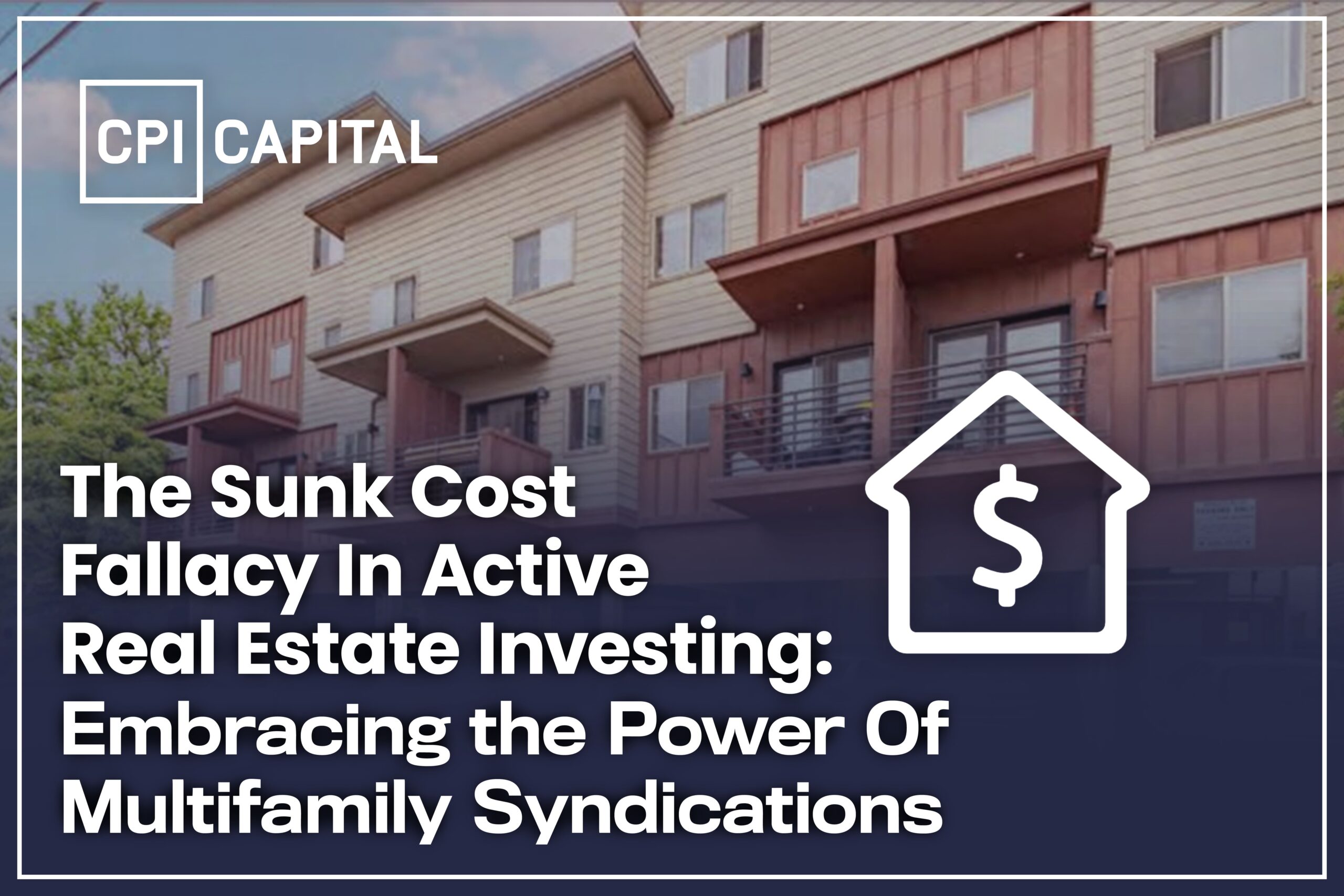
Dear valued existing investors and future investors,
Welcome once again to this week’s CPI Capital’s news briefing. Our regular, weekly newsletter contains a mixture of updates, commentary and informative related articles about the lucrative world of passive real estate investment.
If you are already one of our subscribers, thank you. If you are not, take the chance to sign up to our newsletter now and keep right up to date with all you need to know about syndicated real estate investment!
Download and read our FREE e-book:25 Fundamental questions to ask a Syndication Sponsor before making your investment
Successfully investing in multifamily and/or BTR-SFR real estate assets involves, amongst other things, arranging financing or funding to facilitate acquisitions. Loans, mortgages and other forms of financing are all, clearly, very important to ensure that the development of new projects or refurbishment of existing assets can go ahead.
But what if funding is restricted or not available; or some extraneous event sparks a financial crisis where a lender cannot meet the withdrawal demands of their depositors–and this then spreads to other lenders?
This type of occurrence is often called “contagion” and this week we will have a closer look at what this means to the real estate sector and multifamily assets.
What is contagion?
Contagion is a term that is commonly used in the financial world to describe the spread of financial crises from one region, market, or asset class to another. The term is derived from the concept of a contagious disease, where an infectious agent is spread from person to person, leading to an epidemic or pandemic. In financial terms, contagion refers to the transmission of financial stress or problems from one market to another, resulting in a cascading effect on the global financial system.
What forms can contagion take?
Contagion can take various forms, including financial contagion, economic contagion, and psychological contagion. Financial contagion refers to the spread of financial stress or distress from one market to another. Economic contagion, on the other hand, refers to the spread of economic problems from one country or region to another. Psychological contagion refers to the spread of panic, fear, and uncertainty in the financial markets, leading to a sell-off in assets and a decline in confidence.
A classic example of contagion is the financial crisis of 2008. The crisis began in the US housing market, where a subprime mortgage bubble had formed. When the bubble burst, it led to a wave of defaults and foreclosures, which triggered a domino effect across the financial system. Banks and financial institutions which had invested heavily in these risky mortgages suffered massive losses, which led to a credit crunch and a liquidity crisis. The contagion then spread to other financial markets, such as the interbank lending market, the stock market and the bond market, causing a global financial crisis.
Why does contagion occur?
One of the primary reasons why contagion occurs is the interconnectedness of financial markets and institutions. In today’s globalised economy, financial markets and institutions are highly interconnected, with complex networks of financial relationships and transactions. When a crisis hits one market or institution, it can quickly spread to other markets and institutions, leading to a domino effect.
Another reason for contagion is the so-called herd behavior of investors and traders. When a crisis hits a market, it can trigger panic and fear among investors and traders, leading to a rush to the exits. This herd behavior can exacerbate the crisis, leading to a vicious cycle of selling and declining asset prices.
What effects does contagion have?
Contagion can have significant implications for the global financial system and the real economy. It can lead to a decline in asset prices, a tightening of credit conditions, and a reduction in economic activity. In severe cases, contagion can lead to a systemic crisis, where the entire financial system is at risk of collapse. This, in turn, can lead to a deep recession or depression, with significant social and economic costs.
What measures can counter the effects of contagion?
To mitigate the risk of contagion, policymakers and regulators have implemented various measures. One such measure is to increase transparency and disclosure in financial markets and institutions. By increasing transparency, investors and traders can make informed decisions, which can reduce the likelihood of panic and herd behaviour.
Another measure is to strengthen the resilience of financial institutions and markets. This can be done by increasing capital requirements, improving risk management practices, and enhancing the supervision and regulation of financial institutions. By strengthening the resilience of the financial system, policymakers can reduce the risk of contagion and mitigate the impact of any crisis that does occur.
A third measure is to improve international co-operation and coordination. Given the global nature of financial markets and institutions, it is essential for policymakers and regulators to work together to address cross-border risks and vulnerabilities. This can be done through multilateral institutions, such as the International Monetary Fund (IMF) and the Financial Stability Board (FSB), which provide a forum for policymakers and regulators to share information and co-ordinate their actions.
SIGN UP HERE to receive our investment offerings
CPI Capital is well familiar with the term contagion having seen the effects of the 2008 global financial crisis. It is, clearly, very difficult for regulators and policymakers to halt the spread of financial crises from one region, market, or asset class to another once the “herd mentality” kicks in.
However, at CPI Capital, in times of, for example, any not so positive economic news or issues with liquidity at banks we prefer to look behind the headlines and focus on the attractive fundamentals of the multifamily and/or BTR-SFR sectors, namely the shortage of housing supply and rising demand, and remain confident that the sector will continue to yield attractive investment returns for our investors.
Yours sincerely,
August Biniaz
CIO,Co-Founder CPI Capital

Ready to build true wealth for your family?
It all starts with passive income. Apply to join the CPI Capital Investor Club.
Search
Recommended

What is the Correlation Between Bond Yields and Real Estate Cap Rates?
Dear valued existing investors and future investors, Welcome to CPI Capital's regular news...

The Sunk Cost Fallacy In Active Real Estate Investing: Embracing The Power of Multifamily Syndications
Dear valued existing investors and future investors, Welcome to this week's CPI Capital's news...

Key Metrics Every Multifamily Investor Needs to Know
Dear valued existing investors and future investors, Welcome once again to this week’s CPI...


